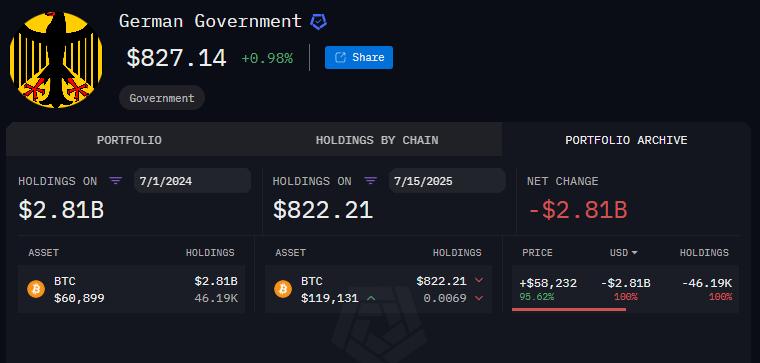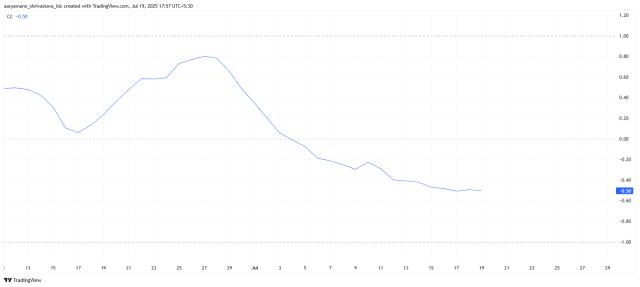One year ago, Germany sold 50,000 Bit, completely liquidating its reserve. During that time, BTC price doubled, and if sold today, Germany could have earned over 6.64 billion USD.
This example could be a useful warning lesson for global leaders. Even if a government is determined to liquidate its assets, just a slight delay could bring Germany much greater profits.
Germany Lost Billions of USD
Occasionally, governments around the world sometimes find themselves holding large amounts of Bit.
Usually, this happens after seizing assets from criminals, but there are other methods. Last year, Germany seized 50,000 Bit in a copyright infringement case, but made a controversial decision to sell everything in July 2024.
 Germany's Bit portfolio in 2024. Source: Arkham
Germany's Bit portfolio in 2024. Source: ArkhamAlmost exactly one year later, this decision looks very unfortunate. Germany sold these Bit for 3.13 billion USD, but asset value has soared since then. Compared to July last year, BTC has actually doubled.
If the country had 50,000 BTC to sell today, they could earn over 6.64 billion USD. Instead, their wallet now only has 0.0069 BTC, accumulated from anonymous users' small donations.
This sale looks even worse because Germany is currently not particularly against cryptocurrency. The country currently issues more MiCA licenses than any other EU member, indicating an actively operating local industry.
However, the country has missed a significant opportunity. So, what can the world learn from this?
Overall, 2024 was a terrible year for governments divesting from cryptocurrency. Some countries, like El Salvador and Bhutan, have deliberately accumulated Bit, while Germany tried to eliminate it.
Under President Biden, the US also began liquidating its assets. Between these two countries and Ukraine, where complete liquidation was also performed, state reserves decreased by 12%.
However, even Biden's partial liquidation had an impact, as it prompted President Trump to push for a Bit Reserve Fund. Two other major holding countries, China and the UK, did not buy or sell any assets last year.
Although these countries do not have official reserves, their custodial assets have become significantly more valuable.
All of this suggests that governments worldwide should consider Germany's decision if they seize large amounts of Bit. Even if a political administration is determined to liquidate, it might be better to delay this as long as possible.
If the German government had followed the most common advice from Bit supporters, HODL, their economy could have earned billions of USD and potentially more in the future.







